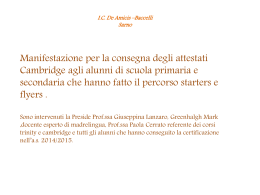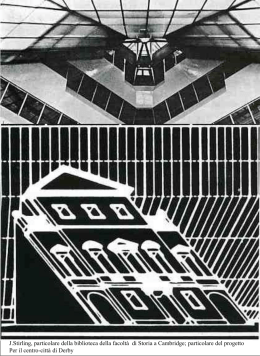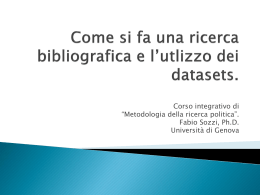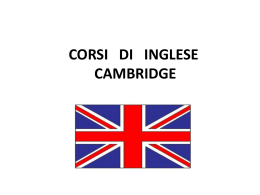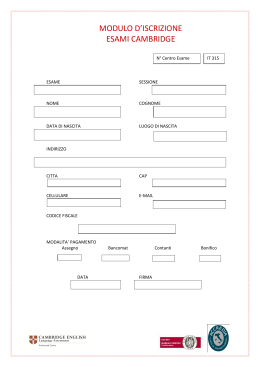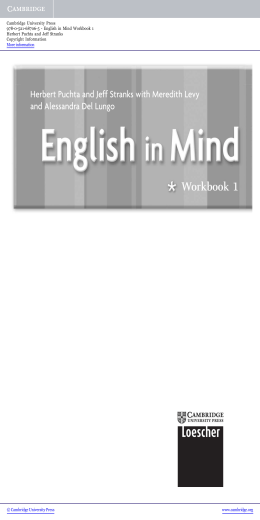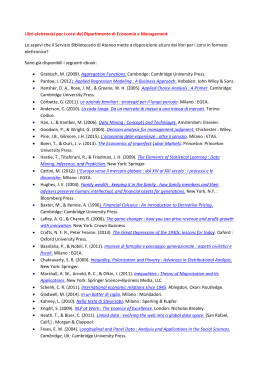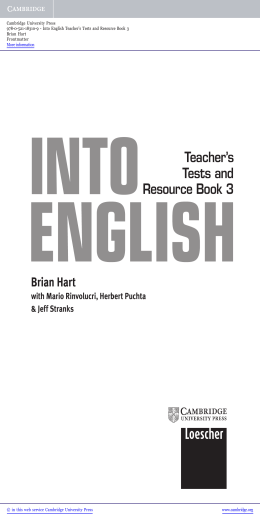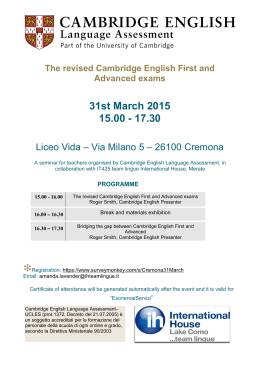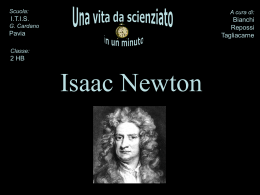Cambridge University Press 978-0-521-11665-7 - Opera’s Orbit: Musical Drama and the Influence of Opera in Arcadian Rome Stefanie Tcharos Frontmatter More information Opera’s Orbit Exploring the dynamic yet problematic context of musical drama in Rome, this study probes opera’s relationship to modernity during the late seventeenth and early eighteenth century. Opera instigated a range of discourses, most notably among Rome’s Academy of Arcadians, whose apprehension towards opera refracted larger aesthetic and cultural debates, and socio-political tensions. Tcharos presents a unique perspective, engaging opera as a historical force that established a sphere of influence across several genres and matrices of culture. The juxtaposition of opera against the prominent forms of the oratorio, serenata, and cantata illustrates opera’s constitutive role in a trans-genre cultural matrix, where the dialogical connections between musico-dramatic forms vividly capture the historicism, nostalgia, contradiction, and cultural reform that opera inspired. By illuminating other genres as reactionary sites of music and drama, Opera’s Orbit boldly reconstructs opera’s eighteenth-century critical turn. stefanie tcharos is Associate Professor of Musicology at the University of California, Santa Barbara, where she specializes in early modern Italian opera and related dramatic vocal music, issues of aesthetics, cultural history, and genre theory. She has published articles and reviews in the Journal of Musicology, Cambridge Opera Journal, and Music and Letters, and was a contributor to The Cambridge History of Eighteenth-Century Music (2009). © in this web service Cambridge University Press www.cambridge.org Cambridge University Press 978-0-521-11665-7 - Opera’s Orbit: Musical Drama and the Influence of Opera in Arcadian Rome Stefanie Tcharos Frontmatter More information Opera’s Orbit Musical Drama and the Influence of Opera in Arcadian Rome stefanie tcharos © in this web service Cambridge University Press www.cambridge.org Cambridge University Press 978-0-521-11665-7 - Opera’s Orbit: Musical Drama and the Influence of Opera in Arcadian Rome Stefanie Tcharos Frontmatter More information cambridge university press Cambridge, New York, Melbourne, Madrid, Cape Town, Singapore, São Paulo, Delhi, Dubai, Tokyo, Mexico City Cambridge University Press The Edinburgh Building, Cambridge CB2 8RU, UK Published in the United States of America by Cambridge University Press, New York www.cambridge.org Information on this title: www.cambridge.org/9780521116657 c Stefanie Tcharos 2011 This publication is in copyright. Subject to statutory exception and to the provisions of relevant collective licensing agreements, no reproduction of any part may take place without the written permission of Cambridge University Press. First published 2011 Printed in the United Kingdom at the University Press, Cambridge A catalogue record for this publication is available from the British Library ISBN 978-0-521-11665-7 Hardback Cambridge University Press has no responsibility for the persistence or accuracy of URLs for external or third-party internet websites referred to in this publication and does not guarantee that any content on such websites is, or will remain, accurate or appropriate. © in this web service Cambridge University Press www.cambridge.org Cambridge University Press 978-0-521-11665-7 - Opera’s Orbit: Musical Drama and the Influence of Opera in Arcadian Rome Stefanie Tcharos Frontmatter More information For my parents, George and Emily © in this web service Cambridge University Press www.cambridge.org Cambridge University Press 978-0-521-11665-7 - Opera’s Orbit: Musical Drama and the Influence of Opera in Arcadian Rome Stefanie Tcharos Frontmatter More information Contents List of illustrations [page viii] Acknowledgments [x] Abbreviations and note to the reader Introduction: opera’s orbit [xiii] [1] 1 Enclosures, crises, polemics: opera production in 1690s Arcadian Rome [20] 2 Disrupting the oratorio [46] 3 The serenata’s discourses of duality [98] 4 The cantata, the pastoral, and the ideology of nostalgia [153] 5 Epilogue [208] Notes [215] Bibliography [291] Index [312] vii © in this web service Cambridge University Press www.cambridge.org Cambridge University Press 978-0-521-11665-7 - Opera’s Orbit: Musical Drama and the Influence of Opera in Arcadian Rome Stefanie Tcharos Frontmatter More information Illustrations Figures 1 Announcement for an Arcadian gathering (1691), reproduced by permission of the Archivio di Stato, Rome. [page 33] 2 Scene changes indicated in the libretto for Il martirio di S. Eustachio, oratorio per musica (1690), reproduced by permission of the Biblioteca Casanatense, Rome. [64] 3 Arnoldo van Westerhout, engraving from frontispiece of the libretto La Giuditta, oratorio (1695), reproduced by permission of the Biblioteca Casanatense, Rome. [78] 4 Michelangelo Merisi da Caravaggio, Judith and Holofernes (c.1598), Galleria Nazionale dell’Arte Antica, Rome, reproduced by permission of Art Resource, New York. [79] 5 William Reuter, Celebrations at the Spanish Embassy on Piazza di Spagna (1662), reproduced by permission of the Akademie der Bildenden Künste, Vienna. [104] 6 Cristoforo Schor, Veduta della piazza con la festa (1687), reproduced by permission of the Kungliga Biblioteket, National Library of Sweden, Stockholm. [115] 7 Michel Angelo la Chausse, planning diagram for macchina da fuoco, printed in Francesco Valesio, Diario di Roma (1704), reproduced by permission of the Archivio Storico Capitolino, Rome. [135] 8 Nicola Salvi, after Antonio Canevari, Gianicolo Bosco Parrasio, Garden of the Accademia dell’Arcadia (1725), reproduced by permission of the Accademia Nazionale di San Luca, Rome. [193] Music examples 1 Alessandro Scarlatti, La Giuditta (Naples): aria, “La tua destra” [1] (Giuditta) [82] viii © in this web service Cambridge University Press www.cambridge.org Cambridge University Press 978-0-521-11665-7 - Opera’s Orbit: Musical Drama and the Influence of Opera in Arcadian Rome Stefanie Tcharos Frontmatter More information List of illustrations ix 2 Alessandro Scarlatti, La Giuditta (Naples): recit. dialogue, “Troppo funesto” (Oloferne, Giuditta), followed by the aria “La tua destra” [2] (Giuditta) [83] 3 Alessandro Scarlatti, La Giuditta (Naples): aria, “La tua destra” [3] (Giuditta) [86] 4 Alessandro Scarlatti, La Giuditta (Cambridge): aria, “Dormi, o fulmine di guerra” (Nutrice) [89] 5 Giovanni Bononcini, La notte festiva: aria, “Or che il sol dormendo” (Apollo) [120] 6 Pietro Paolo Bencini, Le gare festive: sinfonia con trombe (trombe, violini) [136] 7 Pietro Paolo Bencini, Le gare festive: aria, “Ad onta dell’oblio, mie trombe non tacete” (Fama) [138] 8 Alessandro Scarlatti, Al fin m’ucciderete: recit., “Al fin m’ucciderete o miei pensieri!”; aria, “Io morirei contento per non penar cosı̀” [165] 9 Giovanni Bononcini, Ch’io ti manchi di fede, idolo mio?: recit., “Ch’io ti manchi di fede, idolo mio?”; aria, “Se mai tento col solo pensiero” [173] © in this web service Cambridge University Press www.cambridge.org Cambridge University Press 978-0-521-11665-7 - Opera’s Orbit: Musical Drama and the Influence of Opera in Arcadian Rome Stefanie Tcharos Frontmatter More information Acknowledgments x As much as the creation of a book is a solitary act, it is also a shared venture, with a network of professional and personal contacts, academic and research institutions, which all help to usher initial ideas into final form. I have thoroughly enjoyed and deeply appreciated this collaborative aspect of the process. This research in its initial phase was carried out during my time at Princeton University and was supported by the Committee for Italian Studies Fellowship and the Dean’s Fund for Scholarly Travel. Since joining the faculty at UC Santa Barbara, I have received research support from an Academic Senate Faculty Research Grant and a Faculty Career Development Award. I am grateful to Lee Rothfarb who, as chair, assured generous research funds for my hire, and to David Marshall, Dean of the Humanities and Fine Arts, who provided additional funds during later stages of the project. I am also very appreciative of the publication subvention I received from the American Musicological Society, through the support of the Margarita Hanson Endowment Fund. The opportunity to discuss and argue about material relevant to the manuscript was facilitated by my involvement with a number of academic organizations. The American Musicological Society and the Society for Seventeenth-Century Music gave me a forum in which to present my ideas publicly. I am also grateful for opportunities to present my work at conferences and symposia sponsored by the California Interdisciplinary Consortium of Italian Studies, the UCSB Early Modern Center, and the UCSB Center for the Interdisciplinary Study of Music (CISM). As a director and board member of this last organization, I have benefited from the discussions, presentations, camaraderie, and spirit that emerged from this group. Many individuals have helped me complete this project by offering helpful counsel, sharing knowledge, or inadvertently inspiring ideas generated in the book. I would like to thank Margaret Murata for her exchanges with me, and for insights and suggestions, and, especially, Arnaldo Morelli, whose inspiring research provided important foundations for my own interpretive departures. I have special gratitude for generous suggestions offered by Georgia Cowart, Thomas Griffin, Robert Kendrick, and Lowell © in this web service Cambridge University Press www.cambridge.org Cambridge University Press 978-0-521-11665-7 - Opera’s Orbit: Musical Drama and the Influence of Opera in Arcadian Rome Stefanie Tcharos Frontmatter More information Acknowledgments xi Lindgren, who read early drafts and sharpened my thoughts and writing with their acumen. I also want to thank Daniel Albright, Michael Beckerman, Susan Boynton, Daniel Chua, Michal Grover-Friedlander, Mary Hunter, John Nadas, Massimo Ossi, and Neal Zaslaw for their chance conversations, meetings, or presentations that offered helpful information and innovative angles of thought. I am tremendously appreciative of the enthusiastic support I have received from my departmental colleagues and my current chair, Paul Berkowitz, and special mention must go to my dear colleagues in musicology – Derek Katz, David Paul, and William Prizer – whose warm collegiality and intelligent input provided great stability while I was finishing this project. I have been enriched by a vibrant campus of colleagues who provided a larger network for conversations and shared ideas. I would like to thank Elizabeth Cook whose questions about opera instigated unintended exploration, and I have special gratitude for generous and lively exchanges I have shared with Jon Cruz, whose curiosity and wealth of knowledge challenged me to conceive my project in truly novel ways. My students at UC Santa Barbara have been instrumental in allowing me to work out ideas in the ultimate workshop – the graduate seminar. The groups who filled my seventeenth- and eighteenth-century opera courses and the core of people who traveled along with me as we interrogated the genre helped to enrich my work with their discussions. While doing research in Rome, I was provided kind assistance by the staff of the many institutions I frequented, in particular those at the Biblioteca Angelica, Archivio di Stato, Biblioteca Casanatense, Accademia Nazionale dei Lincei e Corsiniana, Biblioteca Nazionale Centrale Vittorio Emanuele II, Conservatorio di Musica Santa Cecilia, and Biblioteca Apostolica Vaticana, with special thanks to the staff of the manuscript reading room. In my home institution, I want to thank the wonderful staff at the UC Santa Barbara Arts and Music Library, with particular mention of gratitude to the music librarian, Eunice Schroeder, and the art librarian, Susan Moon, who provided valuable assistance in securing the book’s cover image. My student Katie Baillargeon served as an invaluable research assistant throughout many phases of the process. I am very grateful for the generous assistance provided by my colleague Alejandro Planchart, who carefully reviewed my music examples. I am especially appreciative of the copious assistance with translations I received from Giovanni Zanovello, whose guidance with the Italian materials was indispensable. My sincere thanks go to Vicki Cooper at Cambridge University Press, who supported the project from its early stages to completion, and to her staff, especially my editors, Dan Dunlavey and Rebecca Jones, for efficient and generous assistance. © in this web service Cambridge University Press www.cambridge.org Cambridge University Press 978-0-521-11665-7 - Opera’s Orbit: Musical Drama and the Influence of Opera in Arcadian Rome Stefanie Tcharos Frontmatter More information xii Acknowledgments Finally, there have been many friends and family members who have cheered me on, propped me up, provided emotional sustenance, shelter, and all kinds of small favors while I worked away on writing this book. I have deep fondness for the friends I have made in Italy who have witnessed this project over the years during my frequent visits there. I want to thank the Carlassare, Jacoboni, and Zanovello families for their kind support and assistance. Special thanks go to Irene Jacoboni and her husband, Salvatore, for their hospitality and dear friendship, and I have particular gratitude for Luisa Mattucci, who offered me not just a place to live during my many stays in Rome, but a community of Roman friends and compatriots who made each visit there special. To my extended family of friends and relatives, who often may not have understood all the particulars of writing a monograph, but applauded all my accomplishments none the less, I thank you for your fond and enthusiastic support. Last, but surely not least, I thank my immediate family of siblings and parents for their understanding, motivation, and unfailing love throughout what can be a very long and arduous experience. Above all, I acknowledge the backbone of support and patience maintained by those most immediate in my life. I offer my gratitude and deepest affection to Matt, a wonderfully intelligent and meticulous reader, and loving critic, who rode with me along the many paths of this project; and to our son, Jacob, whose birth was entwined with the completion of this book, but who somehow managed to make it to the finish line sooner. © in this web service Cambridge University Press www.cambridge.org Cambridge University Press 978-0-521-11665-7 - Opera’s Orbit: Musical Drama and the Influence of Opera in Arcadian Rome Stefanie Tcharos Frontmatter More information Abbreviations D-Mbs F-Pc GB-Ckc GB-Lbl GB-Ob I-MAc I-MOe I-Nc I-Ra I-Rac I-Ras I-Rc I-Rli I-Rn I-Rsc I-Rvat S-Sk US-MT Munich, Bayerische Staatsbibliothek Paris, Conservatoire, in Bibliothèque Nationale de France Cambridge, King’s College, Rowe Music Library London, British Library Oxford, Bodleian Library Mantua, Biblioteca Comunale Modena, Biblioteca Estense e Universitaria Naples, Conservatorio di Musica San Pietro a Majella, Biblioteca Rome, Biblioteca Angelica Rome, Archivio Storico Capitolino Rome, Archivio di Stato, Biblioteca Rome, Biblioteca Casanatense, sezione Musica Rome, Accademia Nazionale dei Lincei e Corsiniana, Biblioteca Rome, Biblioteca Nazionale Centrale Vittorio Emanuele II Rome, Conservatorio di Musica Santa Cecilia Rome, Biblioteca Apostolica Vaticana Stockholm, Kungliga Biblioteket: Sveriges Nationalbibliotek Morristown (NJ), National Historical Park Museum Note to the reader I have provided Italian texts only when the original source is not published, or in the instance that I have worked with the text closely and produced my own translation. For archival and manuscript texts, I have left orthography as in the original, except for minor modifications of punctuation or for clarity. All musical examples have been drawn from manuscript sources. Original aspects have been retained except for bar lines, which have been regularized. xiii © in this web service Cambridge University Press www.cambridge.org
Scaricare
